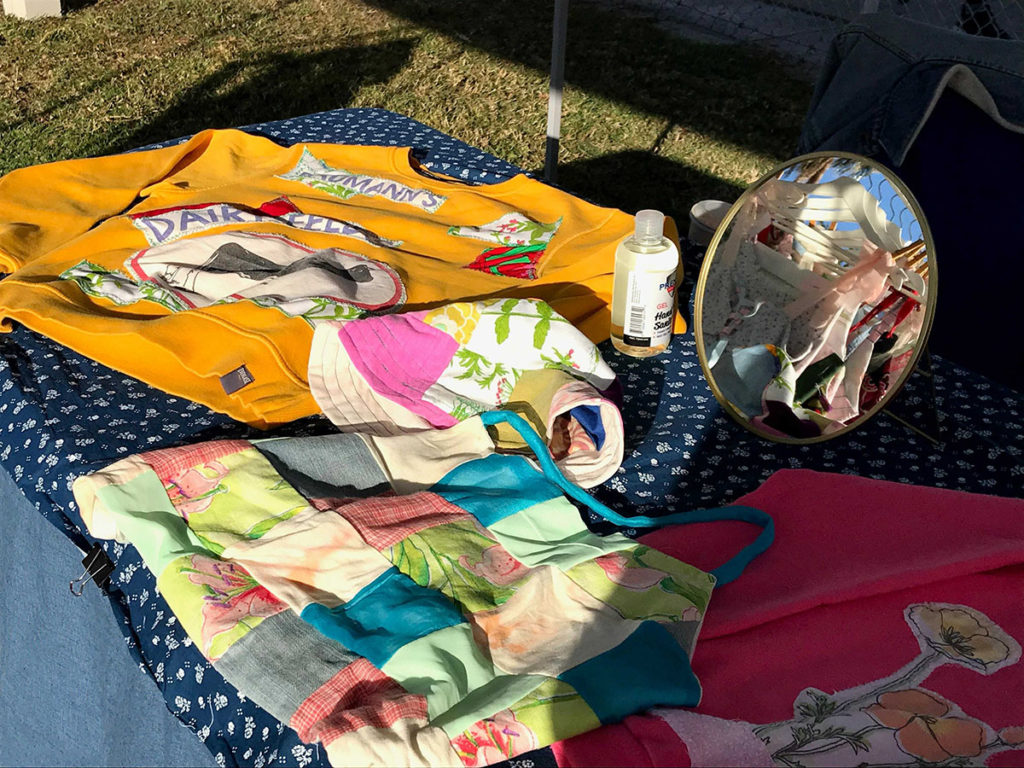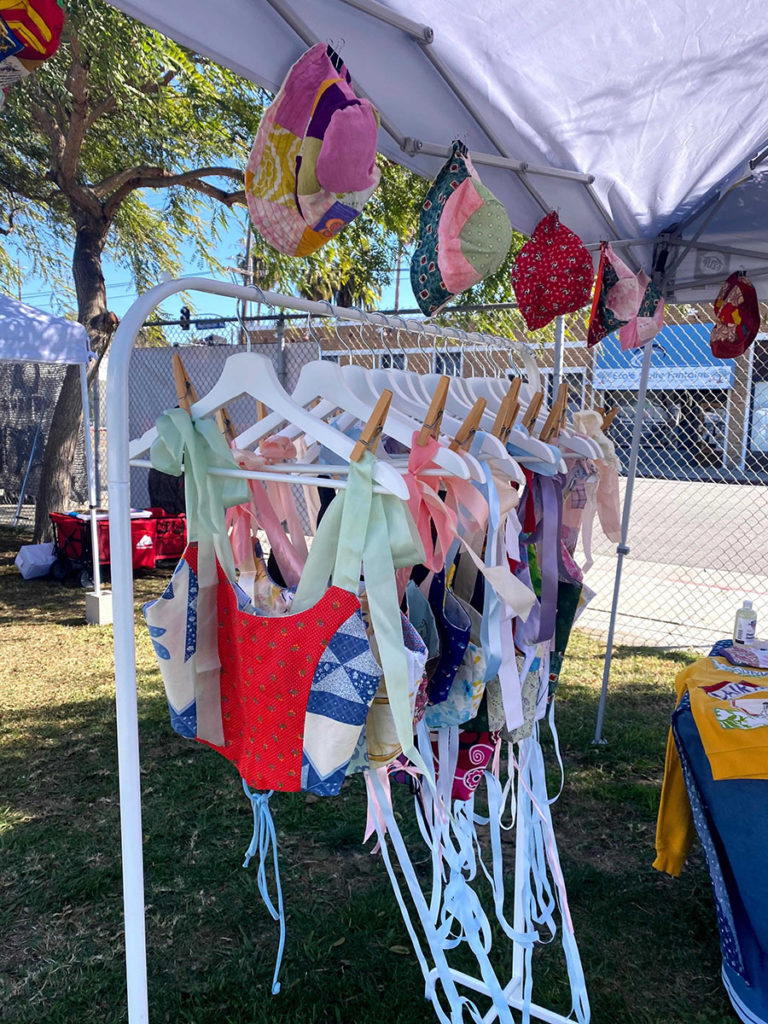Rainbow Fruit is giving historic clothing a colorful new lifestyles.
With a passion for sustainable style, third-yr communication student Jaime Hattori begun her small enterprise Rainbow Fruit in September. through Instagram and flea markets, Hattori sells upcycled clothing made from deadstock and secondhand materials. Amid quarantine, Hattori spoke of she resisted the urge to head shopping to prevent exposing her fogeys to COVID-19 and as a substitute resorted to stitching new items out of historical materials.
"i spotted that I had heaps and a whole lot luggage of my outfits from center faculty … that I certainly not took to Goodwill," Hattori pointed out. "I started patchworking stuff collectively as a result of I had so many scraps of everything that I didn't wish to throw away."
After noticing how dependent manufacturers promote primary tank tops for relatively high expenditures, Hattori noted she wanted to meet and counter this demand via selling sustainable and low-budget apparel. Hattori referred to her mom wanted to support this ardour undertaking and taught her a way to sew and create her personal garb patterns all the way through the pandemic. When she couldn't locate any corset tops online that flattered her body, Hattori said she utilized her sewing talents to create a customized corset right sample from an old dealer Joe's grocery bag. Now, Hattori stated her store is full of at the moment trending patterns like open back patchwork shirts, corset tops and bucket hats.
Hattori's roommate, third-yr public affairs student Amy Stanfield, spoke of Hattori and her store have inspired her to stop browsing at speedy-trend stores and contributing to the overproduction of outfits. although Hattori at first felt doubtful about promoting her pieces, Stanfield pointed out Hattori decided to delivery her Instagram account after wearing her personal creations out in public and receiving many compliments and questions of the place she acquired them.
"She's widespread around Westwood for her outfits," Stanfield referred to. "Her standard apparel is in reality very brilliant and colorful, inventive and now completely her personal as a result of she's making these exciting styles."
[linked: student creates rings enterprise to honor heritage, relieve stress]
Fellow seamstress and Hattori's chum, third-year English scholar Emma Lehman, spoke of she turned into impressed through how rapidly Hattori's stitching capabilities grew the past year. fitted with prior embroidery knowledge, Lehman spoke of she provided some basic stitching suggestions earlier than Hattori mastered the craft herself.
"She had not ever touched a stitching computing device earlier than – I be aware her asking me a way to wind a bobbin," Lehman talked about. "and i consider like within a month or two, she changed into making French-seamed corset tops."
As a sustainable buyer herself, Lehman referred to she wanted to assist Hattori's store not handiest via procuring pieces but additionally via donating cloth. Lehman noted her generosity become rewarded when she noticed one in every of her historical childhood bedspreads repurposed into a new shirt Hattori sold.
anyway relying on donations from chums and her own vault of ancient clothing, Hattori mentioned she also sources fabric from local thrift shops for commissions or when searching for certain patterns. while thrifting is commonly a sustainable observe, Hattori pointed out she best selects damaged fabric to keep away from taking garb from a person who may want it more.
"I'm very towards casting off garb that may very clearly be used and liked by means of somebody else," she mentioned. "but when whatever has a huge stain or is tremendous ripped up, then that's whatever that I all the time like the usage of as a result of they're usually basically cool fabrics, simply now not practical."
 Hattori's patchwork items on the market. (Courtesy of Jaime Hattori)
Hattori's patchwork items on the market. (Courtesy of Jaime Hattori) Rack of Hattori's tops and bucket hats. (Courtesy of Jaime Hattori)
Rack of Hattori's tops and bucket hats. (Courtesy of Jaime Hattori)[connected: Sisters spark joy with family unit-inspired online candle company]
youngsters Hattori wants to expand her enterprise and begin sewing full time, she spoke of she has been struggling with the decision of even if or no longer to ship her clothing. while she desires her items to attain a broader audience, Hattori talked about she issues it will come on the fee of sustainability. For Hattori, this predicament bears loads of weight, because the greenhouse gases emitted from transporting items are a big difficulty of the sustainability movement, and she mentioned she doesn't need to compromise her ethical values for earnings.
Hattori talked about her most useful purpose is to open a physical keep that additionally serves as a studio space for her to create extra items. inspired by using a home made lingerie store in Echo Park that she and Stanfield typical, Hattori stated this open atmosphere would allow her essentially the most artistic freedom. while Hattori has pursued other hobbies in her school career, she talked about running her small company – besides the fact that children challenging – has been the most appropriate.
"It's in reality cool that i'm capable of preserve everything that I make out of landfills," Hattori spoke of. "That's the definition of giving whatever thing a brand new existence – just recreating it so a person who would not have loved the customary merchandise … can grow to be loving it in its new kind."
No comments:
Post a Comment